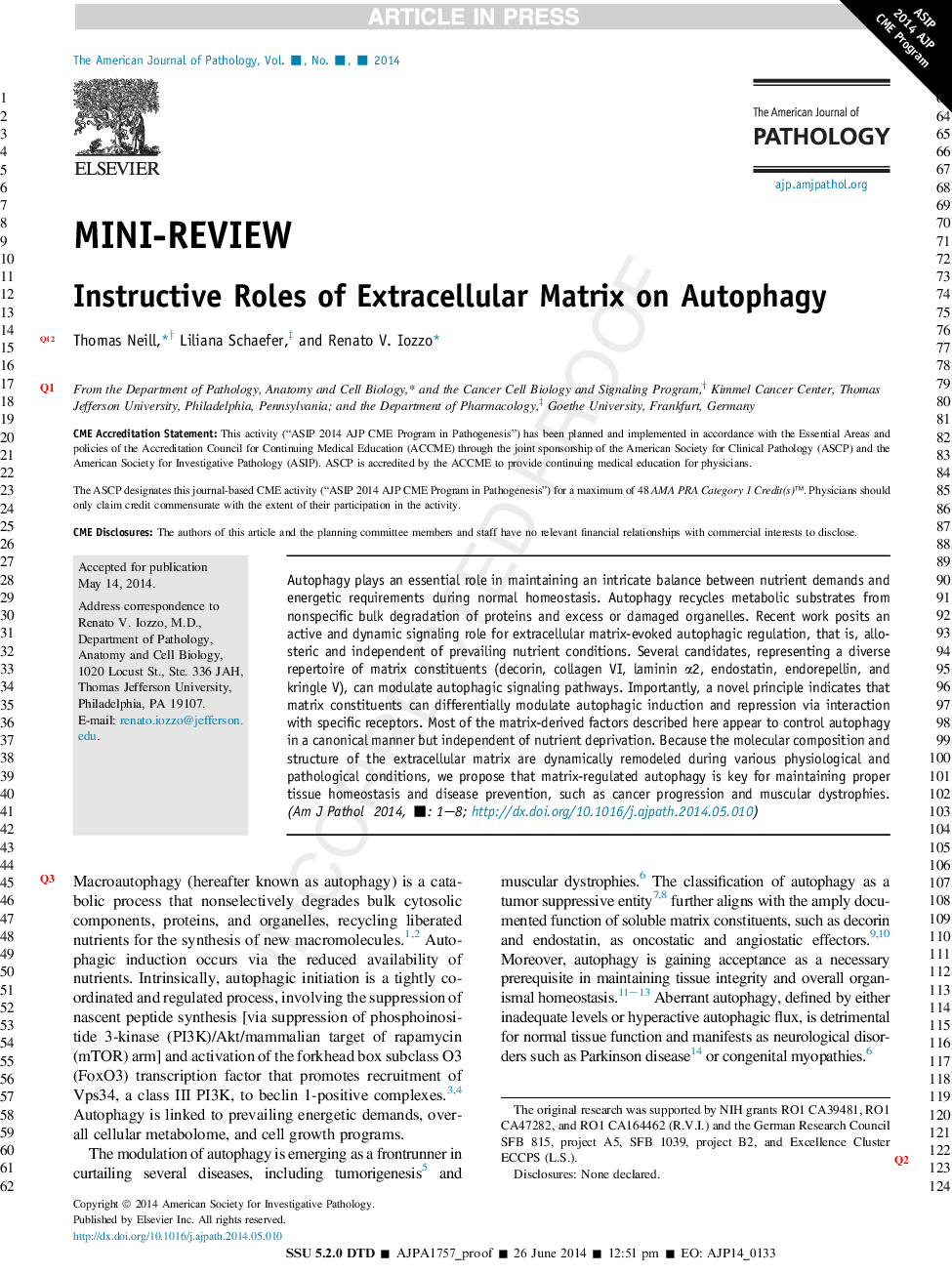| Article ID | Journal | Published Year | Pages | File Type |
|---|---|---|---|---|
| 5932808 | The American Journal of Pathology | 2014 | 8 Pages |
Abstract
Autophagy plays an essential role in maintaining an intricate balance between nutrient demands and energetic requirements during normal homeostasis. Autophagy recycles metabolic substrates from nonspecific bulk degradation of proteins and excess or damaged organelles. Recent work posits an active and dynamic signaling role for extracellular matrix-evoked autophagic regulation, that is, allosteric and independent of prevailing nutrient conditions. Several candidates, representing a diverse repertoire of matrix constituents (decorin, collagen VI, laminin α2, endostatin, endorepellin, and kringle V), can modulate autophagic signaling pathways. Importantly, a novel principle indicates that matrix constituents can differentially modulate autophagic induction and repression via interaction with specific receptors. Most of the matrix-derived factors described here appear to control autophagy in a canonical manner but independent of nutrient deprivation. Because the molecular composition and structure of the extracellular matrix are dynamically remodeled during various physiological and pathological conditions, we propose that matrix-regulated autophagy is key for maintaining proper tissue homeostasis and disease prevention, such as cancer progression and muscular dystrophies.
Related Topics
Health Sciences
Medicine and Dentistry
Cardiology and Cardiovascular Medicine
Authors
Thomas Neill, Liliana Schaefer, Renato V. Iozzo,
